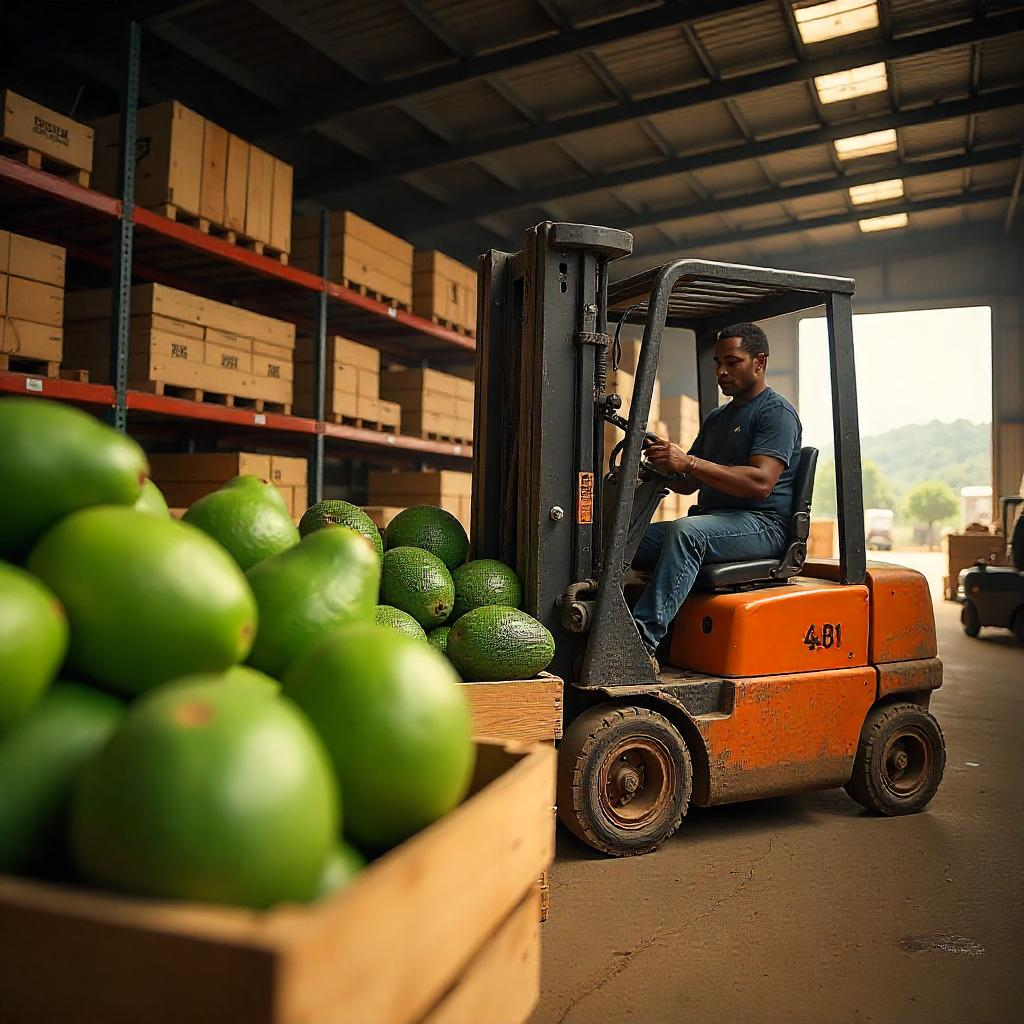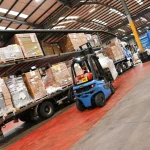
From Warehouse Floors to Global Trade Routes: The Essential Role of Wooden Pallets in Logistics
In a world where global commerce moves at lightning speed, it’s easy to overlook the humble wooden pallet. Yet these simple platforms support an estimated 80% of all goods in transit worldwide. From the moment products leave the production line in a Kenyan factory to their arrival at international destinations, wooden pallets serve as the literal foundation of modern logistics. At Deka Kraft, we recognize that these unassuming wooden structures are not just accessories to the supply chain—they are the critical infrastructure that connects warehouse floors to global trade routes.
The Foundation of Warehouse Operations
The efficiency of any warehouse begins from the ground up. Modern warehouse management systems are designed around standardized pallet dimensions, with racking systems, forklifts, and inventory management software all calibrated to work with properly designed pallets.
For Kenyan businesses, the choice of pallet has direct implications for operational efficiency. Take Nairobi-based food processor Savanna Foods, for example. After switching to Deka Kraft’s heavy-duty warehouse pallets, they reported a 32% increase in vertical storage capacity and a 17% reduction in product damage. The standardized dimensions and superior weight distribution of quality pallets allowed them to optimize their warehouse layout and automate more of their internal logistics.
Beyond space optimization, quality pallets significantly impact workplace safety. The Kenya Occupational Safety and Health Administration reports that nearly 15% of warehouse injuries are related to broken or substandard pallets. The splinters, protruding nails, and sudden collapses associated with inferior pallets create hazards that quality-manufactured options eliminate. Deka Kraft’s rigorous quality control process ensures that every pallet that leaves our facility meets the highest safety standards.
Beyond the Warehouse: Local Distribution Networks
Once goods leave the warehouse, the real test of a pallet’s quality begins. Kenya’s diverse terrain and sometimes challenging road conditions place unique demands on logistics equipment. The vibrations from unpaved roads, exposure to humidity variations, and the need for manual handling in areas without mechanized equipment all test the durability of wooden pallets.
Local distribution networks rely on pallets that can withstand these conditions while maintaining their structural integrity. Deka Kraft’s locally manufactured pallets are specifically designed with Kenyan conditions in mind, using wood species and construction techniques that provide maximum durability under local environmental conditions.
The economic impact of proper palletization extends throughout the distribution chain. Studies show that standardized, quality pallets can reduce loading and unloading times by up to 25%, creating significant cost savings across multiple touchpoints. For businesses operating on thin margins, these efficiency gains can be the difference between profitability and loss.
Entering the Global Arena
When Kenyan products go international, the demands on pallets increase exponentially. International shipping regulations, particularly the International Standards for Phytosanitary Measures No. 15 (ISPM 15), impose strict requirements on wooden packaging materials crossing international borders. These regulations, designed to prevent the spread of pests and diseases, require wooden pallets to undergo specific heat treatment or fumigation processes.
For Kenyan exporters, compliance with these standards is non-negotiable. A shipment arriving at a foreign port on non-compliant pallets risks rejection, delays, or costly remediation. Deka Kraft’s export-grade pallets are fully ISPM 15 compliant, providing Kenyan businesses with the confidence that their products will clear international customs without phytosanitary complications.
The experience of Kenyan flower exporter Bloom Petals illustrates the importance of proper export palletization. After experiencing delays with European customs due to pallet compliance issues, they partnered with Deka Kraft for a complete logistics overhaul. The result was a 40% reduction in customs processing time and the elimination of phytosanitary holds. Their flowers now move seamlessly from Kenyan greenhouses to European florists, preserving freshness and market value.
Sustainability in the Global Supply Chain
In an era of increased environmental awareness, the sustainability of logistics operations has become a critical consideration. Wooden pallets offer significant environmental advantages in this context. As a renewable resource, responsibly sourced wood has a lower carbon footprint than petroleum-based alternatives like plastic pallets.
Deka Kraft’s commitment to sustainability extends beyond material choice to our entire production process. We source wood exclusively from certified sustainable forests, contributing to Kenya’s reforestation efforts rather than deforestation. Our manufacturing facility employs energy-efficient technologies and waste reduction practices, ensuring that our environmental footprint is minimized.
The circular economy of wooden pallets further enhances their sustainability credentials. Unlike single-use packaging, wooden pallets can be repaired, reused, and eventually recycled into other wood products at the end of their lifecycle. This extended lifespan distributes the environmental impact of production across multiple use cycles, reducing the overall resource consumption associated with logistics operations.
Choosing the Right Pallet for Global Trade
For Kenyan businesses looking to optimize their logistics for both local and international markets, pallet selection deserves strategic consideration. Key factors to evaluate include:
- Load requirements: Different products place different demands on pallets. Heavy machinery requires substantially different support than boxed consumer goods.
- Handling methods: Will pallets be moved primarily by forklifts, pallet jacks, or manual handling? Each method has implications for pallet design.
- Destination requirements: International destinations may have specific size or treatment requirements beyond basic ISPM 15 compliance.
- Reuse plans: Will pallets be part of a return logistics system, or are they intended for one-way shipment?
- Storage conditions: Exposure to weather, temperature variations, or high humidity may dictate special wood treatments or construction techniques.
Deka Kraft’s engineering team works directly with clients to analyze these factors and develop pallet solutions that address their specific needs. For specialty products, our custom pallet design service creates purpose-built solutions that optimize protection, efficiency, and compliance.
The Future of Wooden Pallets in Global Logistics
As global supply chains continue to evolve, wooden pallets are adapting to meet new challenges. Innovations in tracking technology, including RFID tags and QR codes embedded in pallets, are enabling better inventory management and loss prevention. Advances in wood treatment technologies are extending pallet lifespans while reducing environmental impact.
Deka Kraft remains at the forefront of these innovations, continually refining our manufacturing processes and pallet designs to meet the changing needs of Kenyan businesses. Our research and development team works in partnership with logistics experts to anticipate future requirements and develop solutions before they become industry standards.
Conclusion
From warehouse floors to global trade routes, wooden pallets provide the essential infrastructure that makes modern commerce possible. Their contribution to efficiency, safety, and sustainability makes them far more than simple wooden platforms—they are sophisticated logistics tools that deserve careful consideration.
For Kenyan businesses looking to optimize their local operations or expand into international markets, the right pallet strategy can provide a significant competitive advantage. Deka Kraft’s combination of local manufacturing expertise and global standards compliance offers the ideal solution for businesses at any stage of this journey.
Contact our logistics consultants today to discuss how optimized pallet solutions can transform your supply chain from a local operation to a global powerhouse.





Add a comment